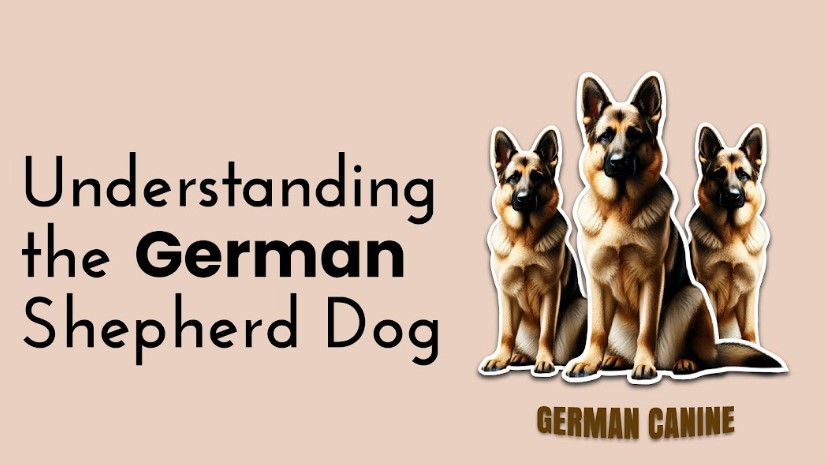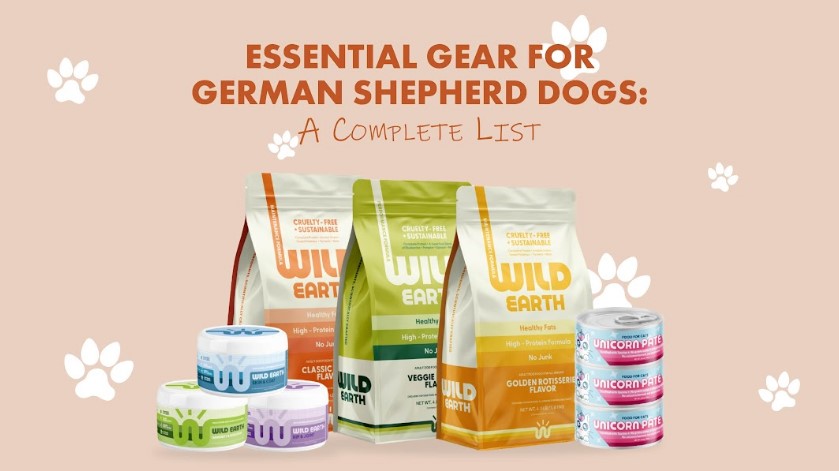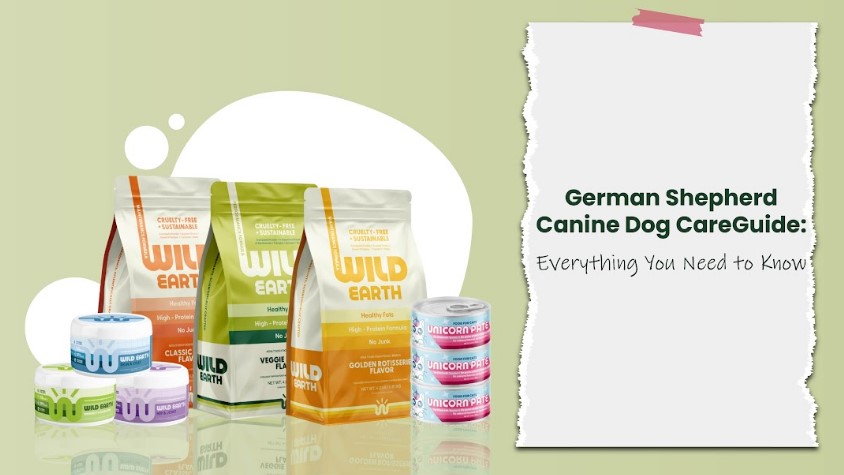Bringing a puppy into your life is a joyous occasion, but it also comes with many responsibilities, especially when it comes to feeding. Proper nutrition is crucial in the early stages of your puppy’s life to support their growth, development, and overall health. This post will guide you on how to feed a puppy, with a special focus on those under 3 months old. We will provide a detailed feeding chart, answer common questions, and introduce you to top-quality puppy food options from Wild Earth Pet Food to help your furry friend thrive.
Understanding Puppy Nutrition
Puppies, like babies, have specific nutritional needs that differ from those of adult dogs. During the first few months of life, they are growing rapidly and require a diet rich in proteins, fats, vitamins, and minerals. Nutrition can help build strong muscles, bones, and immune systems.
Your puppy’s food should be specifically formulated to meet these developmental needs. Commercial puppy food is often the best option, as it contains all the essential nutrients in the right proportions.
Puppy Feeding Chart for Puppies Less Than 3 Months Old
Below is a general feeding chart to help guide you in feeding your puppy. Remember that every puppy is different, and factors like breed, size, and activity level can influence its dietary needs. Always consult your vet for personalized advice.
Age of Puppy Amount of Food (per meal) Number of Meals Per Day
6-8 weeks old 1/4 to 1/3 cup 4 meals
8-12 weeks old 1/3 to 1/2 cup 3 meals
12 weeks and older 1/2 to 1 cup 3 meals

6-8 Weeks Old
Puppies typically transition from their mother’s milk to solid food at this age. Start by offering soft, high-quality puppy food that’s easy for them to chew. Wet food can be a good choice in this early stage since it is gentle on their stomachs. Mix dry kibble with water or puppy formula to create a soft mush.
8-12 Weeks Old
When your puppy is 8 weeks old, they should be ready to eat dry or semi-moist puppy food. Feed your puppy three to four small meals a day. Be sure to choose a food that supports your puppy’s growth, like the high-protein Wild Earth Pet Food designed specifically for puppies.
12 Weeks and Older
At 12 weeks, your puppy is still growing quickly but may be able to handle larger meals. Feeding them three meals daily, gradually increasing their food portion as needed. If you haven’t already, this is also a good time to switch to a high-quality dry food, such as Wild Earth Dog Food.
Best Puppy Food for Growth and Development
Choosing the best food for your puppy is crucial for their growth and overall health. Not all dog foods are created equal, and selecting food formulated specifically for puppies is essential. This ensures they get all the nutrients they need to grow strong and healthy.
Why Choose Wild Earth Puppy Food?
At Wild Earth, we believe in providing puppies with the nutrition they deserve, crafted with the highest quality ingredients. Our dog food is plant-based, free from artificial additives, and rich in protein, making it an ideal choice for young, growing puppies. We chose Wild Earth because it offers a sustainable, ethical, and healthy approach to feeding your puppy.
Wild Earth Pet Food is packed with premium ingredients like chickpeas, sweet potatoes, and yeast, which support muscle growth and overall health. Unlike many traditional dog food brands, we avoid using animal by-products, fillers, and artificial preservatives, making our food highly nutritious and environmentally friendly.
Wild Earth Dog Food for Puppies
Our specially formulated Wild Earth Dog Food contains all the essential vitamins, minerals, and nutrients to support your puppy’s growth. High in plant-based protein, our food promotes strong muscles and healthy bones while supporting the immune system. Choose Wild Earth for your puppy’s first food experience, and give them a solid foundation for life.
How to Feed Your Puppy: Step-by-Step Guide
Feeding a puppy is not just about giving them food but creating a positive and healthy feeding routine. Here is a simple guide to feeding your puppy:
Set a Feeding Schedule
Consistency is key when feeding your puppy. Try to feed them at the same time every day to establish a routine. Puppies thrive on structure, and knowing when their next meal is coming can help reduce anxiety and keep them satisfied.
Choose the Right Puppy Food
As mentioned earlier, choose food that is specifically formulated for puppies. Look for high-protein foods that balance fats and carbohydrates to fuel their energy levels.
Measure the Food
Use a measuring cup to ensure you feed your puppy the right amount. Overfeeding can lead to obesity, while underfeeding can stunt growth.
Hydration is Key
Always provide fresh water alongside your puppy’s food. Dehydration can lead to serious health issues, so make sure your puppy has access to clean water throughout the day.
Monitor Their Weight and Growth
Regularly weigh your puppy to ensure it is growing at a healthy rate. If you notice any drastic changes in its weight, consult with your vet.
Avoid Human Food
While sharing your food with your new furry friend is tempting, avoid giving them human food. Many foods, like chocolate, grapes, or onions, are toxic to dogs.
Introduce Treats Slowly
Treats should be positive reinforcement during training but should not replace meals. Introduce them slowly to avoid upsetting your puppy’s stomach.
Common Questions About Puppy Feeding
How much food should I give my puppy per meal?
The amount of food your puppy needs depends on its age, breed, and size. Puppies under 12 weeks old typically need around 1/4 to 1/2 cups of food per meal, with 3-4 meals per day. As they grow, you will need to adjust portions accordingly. Wild Earth offers an excellent feeding guide with tailored feeding amounts based on your puppy’s size and age.
Should I feed my puppy wet or dry food?
Both wet and dry food have their benefits, but many pet owners choose a combination of both. Wet food can help with hydration, while dry food helps maintain healthy teeth. The key is to choose high-quality food like Wild Earth Dog Food, designed to provide the best nutrition, whether wet or dry.
Can I switch my puppy’s food?
Yes, but it is important to do so gradually. Sudden changes in food can upset your puppy’s stomach. Over 7-10 days, gradually mix in the new food with their current food, increasing the amount of new food each day until the transition is complete.
When should I switch my puppy to adult food?
Puppies typically transition to adult food around 12-18 months, depending on their breed. Larger breeds may need to stay on puppy food for longer. Consult your vet to determine when your puppy can transition to adult food.

Conclusion Feeding Your Puppy the Right Way
Proper puppy feeding is essential for its health and development. By following a consistent feeding schedule, choosing the right food, and ensuring proper hydration, you can set your puppy up for a lifetime of good health wild earth dog food provides premium, plant-based puppy food that supports growth, muscle development, and overall wellness while being kind to the environment.
If you have any questions about your puppy’s feeding needs, contact us at Wild Earth. We are here to help ensure your puppy has the best nutrition possible for a happy, healthy start in life.
Contact us today to learn more about our premium puppy food options!






Leave a comment
Your email address will not be published. Required fields are marked *